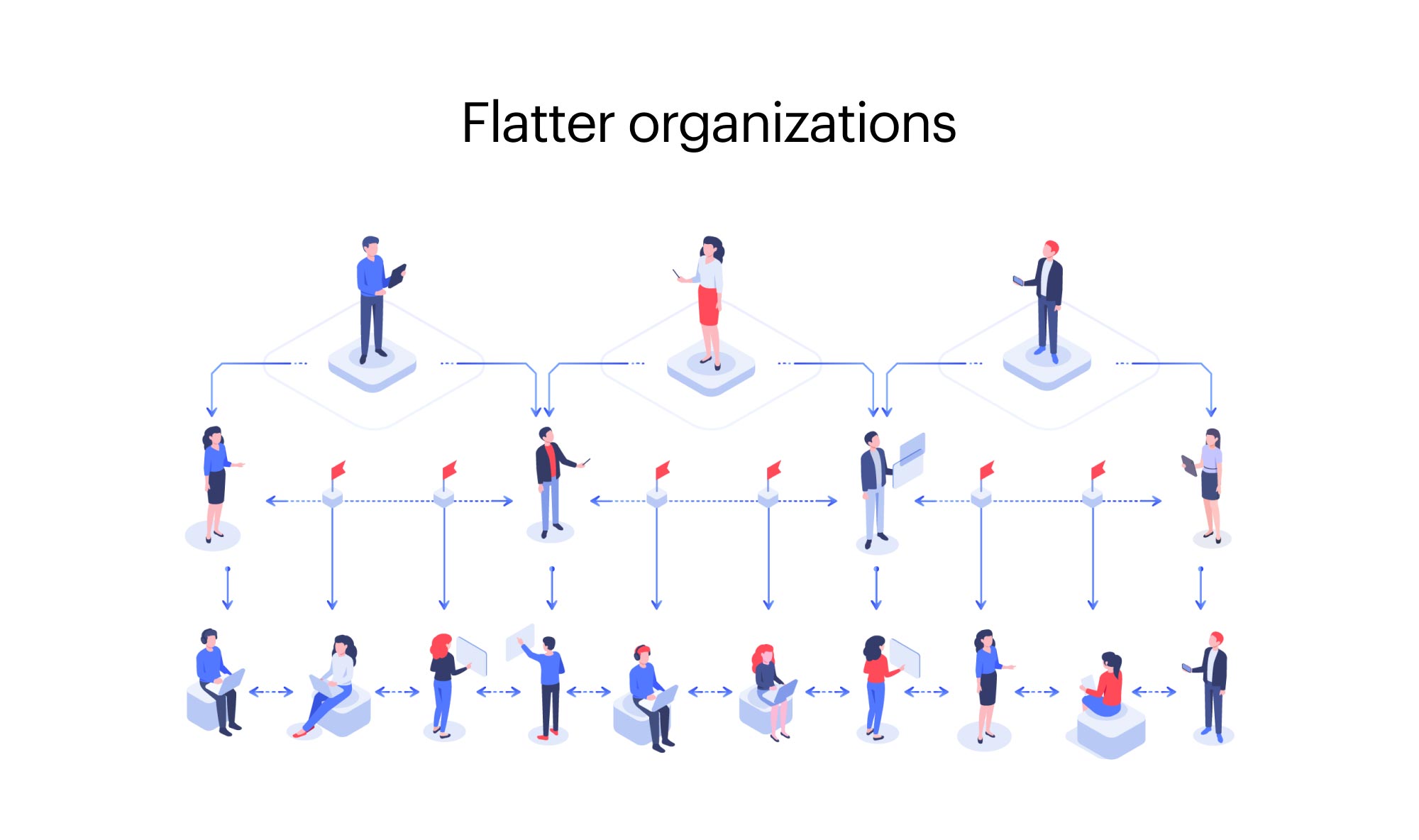Rapid technological advancements, new lifestyle trends brought on by the pandemic, and an unpredictable economy have created a new kind of anxiety for entrepreneurs. But you may be surprised to hear that smaller businesses have a higher chance of staying afloat and adapting to the new world compared to their large and unwieldy competitors, despite the common misconception that big equals stability and profit.
The current generation of workers is advocating for change: from disgruntled individuals to the infamous ‘antiwork’ movement taking over the internet right this second, few remain impartial in the debate for new and improved corporate culture. The pandemic has highlighted the quiet job dissatisfaction that went unspoken for years, alongside the public’s distrust of large conglomerates and rigid corporate structures that have hit an all-time high.


This ongoing trend is simply another step in the evolution of a modern business. While bigger, older organizations choose to stick to the conventional arrangement of a vertical power structure and tighter supervision, smaller businesses are increasingly opting for decentralized management that allows for autonomy for individual workers and teams. The more lax management style results in lowered pressure and higher staff morale, but there are less obvious benefits as well: with the additional sense of personal responsibility, employees generally report higher levels of motivation and tend to be more innovative. And, with fewer meetings and less wait time for approval decisions, a horizontal management structure leads to higher agility for businesses and, as a result, quicker reaction time to new market trends.
Some larger corporations, such as Johnson & Johnson, have started moving in the same direction, dividing their business not only into subsidiaries, but further into smaller teams with their own tasks and projects. A more obvious example of this management style is a typical startup where a high speed of implementation is the difference between surviving or failing. You can’t plan for every new development in the market, but a flexible approach to business organization will allow for a better chance to adapt and seize new opportunities.
As SAPHIRA’s creative director reports, in the current economy, few companies remain at an advantage for long without continuously evolving, adopting new technology, and coming up with enticing small business marketing strategies. And, when it comes to innovation, small and medium-sized businesses have the upper hand. Smaller businesses tend to target more niche markets with lower competition, and they can even afford to be experimental. Small tech companies, for instance, can release unfinished test products and improve on them if there is market interest, while organizations with established clients can not afford to release a less-than-perfect product (or at least an attempt at one) without disappointing the public and losing their customers’ loyalty.
Of course, there is an elephant in the room that we have not mentioned so far – funding. Despite innovation and hard work without sufficient capital you can fall behind the current trends. If you’re using outdated methods and sub-par tech, no amount of genius will grant you long-term customer loyalty. This is the main reason why many new businesses reach short-term success but fail within a few years. Big brands have the funds to invest in new technology or even develop their own, but small businesses are forced to be more strategic. Resources need to be allocated wisely, even if you’re forced to forgo higher immediate profits in favor of investing in your future. This sentiment is also supported by the Harvard Business School professor William A. Sahlman, who writes that “if the short term looks unsettled, that often means that focusing on the long term has a big potential payoff.”

This is a common mistake committed by SMBs; with limited capital to start out with, most entrepreneurs are tempted to focus on sales numbers and short-term stability, leaving brand-building and future investments on the back burner. But this strategy simply isn’t feasible in the modern world. The modern consumer does not want a nameless product. They want a brand that they can identify with and rely on as time goes on, and for this you need calculated tactics and in-depth research.
SAPHIRA was created for this very purpose. Many organizations simply do not have the time, resources, or skills to conduct their own research and manage every aspect of their business’ development. Our company provides a full spectrum of marketing services, from SMB marketing, market research and strategy development to creating a strong brand identity and managing communication with the target audience. Our in-house production team creates award-winning content, advertisement and videos; our social media management team works tirelessly to engage and attract customers, and our web development team creates modern and sleek designs that will entice any potential buyer. You can rest easy, knowing that we will guide you through every step of the process, even starting with the very conception of your brand.
Trust your business to professionals who will take your every need into account and create the perfect experience for your end customer.





